1. Flowers In The Dirt (1989)
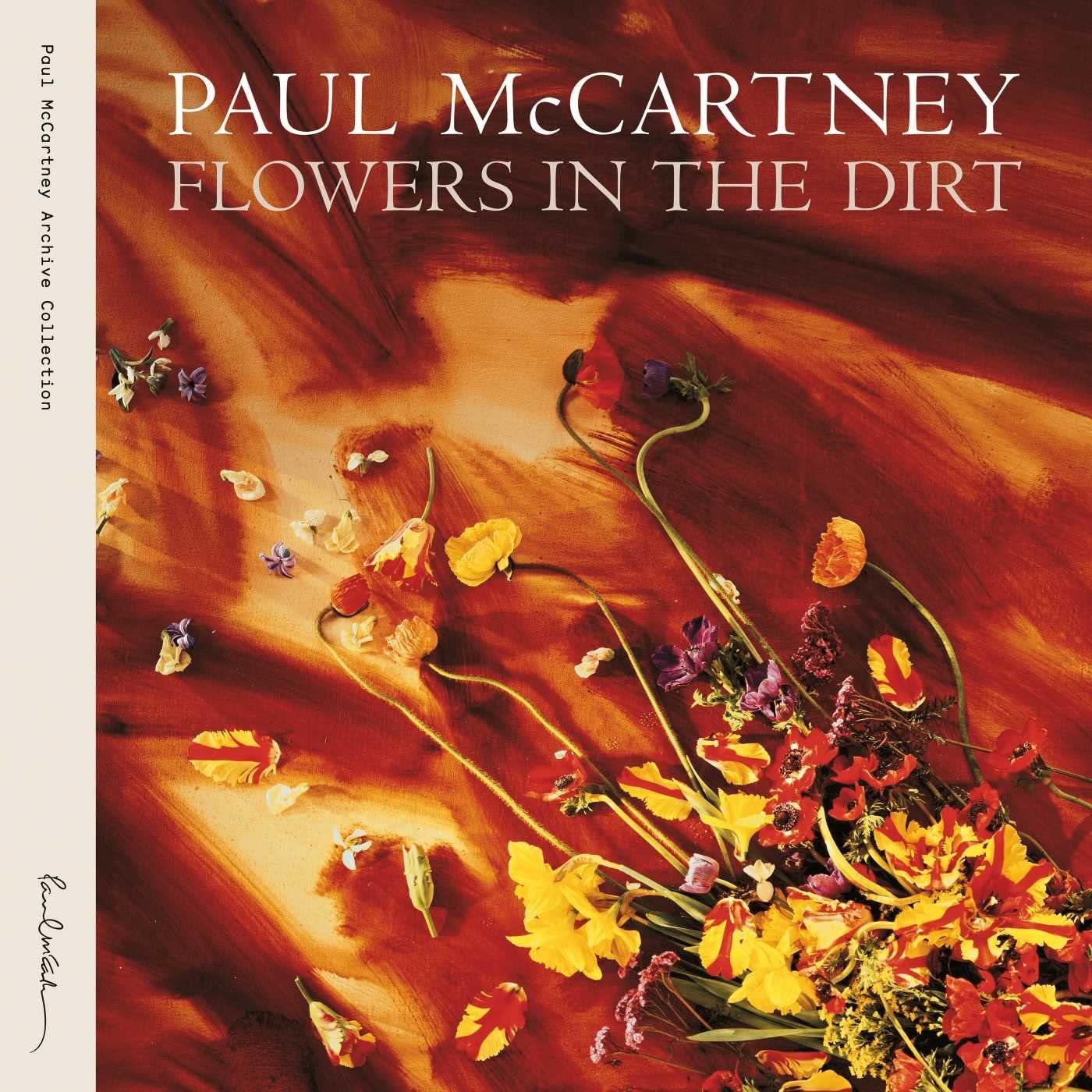
The 80s were a creatively fecund time for McCartney. In full magpie mode, he took inspiration from a variety of musical styles – the emerging electronica scene, funk, soul, folk and 50s rock and roll – and found either creative or commercial success (and sometimes both) with all of them, racking up 6 top 10 albums in the UK, 6 top 30 albums in the US, 11 top 10 singles in the UK (5 of them number 1s) and 6 top 10s in the US (including 3 number 1s).
But equally, the 80s were a testing time for Macca. As Jeff Slate noted in his 2017 Esquire article that coincided with the release of the Archive Collection edition of Flowers in the Dirt, the 80s saw, ‘a pot bust in Japan, the break-up of Wings, the assassination of John Lennon, a failed venture into filmmaking, a floundering recording career, public and private squabbling with George Harrison and Ringo Starr, and Michael Jackson buying the rights to his beloved Beatles songbook out from under him’.
With all that going on (although, given the above chart stats, I don’t agree that McCartney’s recording career was ‘floundering’) it’s no surprise that listening through McCartney’s 80s albums can be something of a chore. Despite some very high watermarks – ‘Waterfalls’, ‘Coming Up’, ‘Say Say Say’, ‘No More Lonely Nights’, ‘Here Today’, (and even the pomp-pop of ‘Tug of War’ and ‘Pipes of Peace’) – the albums can be typically characterised as extremely uneven with a few great tracks a piece and an awful lot of filler. McCartney II and the throwaway but fun Choba B CCCP are the partial exceptions that prove the rule.
In a 1987 NME interview, McCartney admitted ‘I’m superstitious. I think that if you stop, you might never come back’. Much of his 80s output sounds like McCartney writing and recording something, anything, simply to avoid stopping and disappearing into the pop void.
But all that changed with Flowers in the Dirt, the strongest McCartney album since At The Speed of Sound more than a decade earlier. In a filmed interview for Put It There: The Making of Flowers in the Dirt, McCartney says the album’s consistent high quality is due ‘mainly ’cause we’re going out on tour, we kinda probably took a little bit more care over this one. I just don’t want to get stuck out in America somewhere on tour flogging an album that we don’t like.’
There was of course another reason. In 1987, McCartney began a short-lived writing partnership with Elvis Costello that, given the results on Flowers, reinvigorated McCartney’s creativity. McCartney himself compared the collaboration to his partnership with Lennon; a huge compliment. Costello’s raw and radical vision for the record was at odds with McCartney’s desire to make a more polished product and so only four co-writes made it on to the album (other tracks appeared over time on later McCartney and Costello solo records). But even if we were cheated on a complete album’s worth of material from the pair, what we do get is impressive.
The bold a cappella harmonies that open ‘My Brave Face’, and the album, are almost confrontational. McCartney seems to dare his critics to deny him the right to plunder his own musical legacy, with a nimble, melodic bass line played on that Höfner 500/1 as a bonus F.U.. It’s a tantalising taste of what The Beatles might have sounded like had they made it unscathed to the end of the 80s.
There’s more than a hint of Lennon and McCartney lyrical yin and yang about the memorable duet ‘You Want Her Too’. As McCartney pointed out in the NME interview ‘Elvis, he reminds me a little of John. Working with him is very similar. We wrote one song and thought ‘God, this is just like The Beatles’. There seems to be more of Costello’s dark edge in ‘Don’t Be Careless Love’, a sweet love song over which illogical anxiety casts its long shadow (‘Saw your body/rolled up in a rug/chopped into two little pieces/By some thug….But in the morning light…you’re by my side).
‘That Day Is Done’, written about the passing of Costello’s maternal grandmother, is the album’s emotional centrepiece. He told Esquire magazine that it ‘just came tumbling out in a lot of dense images that were very vivid and real to me, but perhaps not so comprehensible to the listener. Paul did something very subtle but crucial in making that song pay off to a big, plain spoken chorus, after I’d piled up all of these lines in the verses, including the one that yielded the album’s title.’
Perhaps buoyed by such a productive partnership (the above mentioned re-issue is well worth investigating for additional songs including the ‘Lovers That Never Were’, ‘Tommy’s Coming Home’ and ‘Twenty Fine Fingers’ that are easily as good as the tracks that made it to the original release. For a full appraisal of the McCartney/Costello demos, this article at reclinernotes.com is excellent), McCartney’s solo writes are uniformly excellent. ‘Distractions’, ‘Figure of Eight’ and ‘We Got Married’ are all top drawer stuff. There is the bafflingly awful white man’s reggae of ‘Too Many People’, but that’s just part of the eternal mystery of McCartney; the man that can write something as sublimely strange and haunting as ‘House of Wax’, to take just one random example, is the same man that can compose awful dreck like ‘We All Stand Together’.
It seems a shame that McCartney has never worked with Costello again given the quality of Flowers, but perhaps the echoes of Lennon and The Beatles were just a bit too strong for him. Given the breadth of his work in the 90s and beyond, with his classical compositions and his more experimental work with Youth as The Fireman, it seems McCartney had his sights fixed firmly on the future rather than looking back to the past.
Beatles Handbook rating: 5 stars
Essential tracks
My Brave Face
You Want her Too
That Day Is Done
Buy this album: Flowers in the Dirt
2. McCartney II (1980)
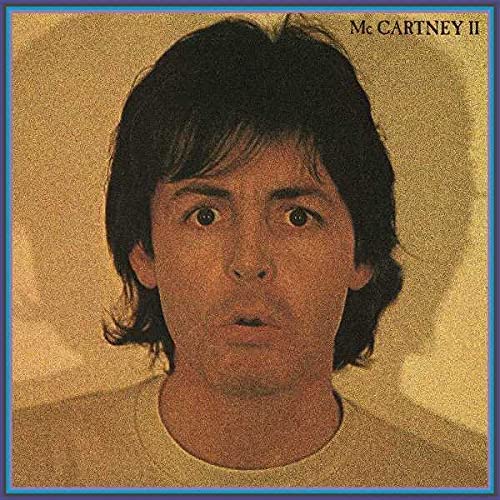
Echoing McCartney a decade earlier, McCartney II is a completely solo, home-recorded album that explores the possibilities offered by the then new-fangled technology of synthesisers and sequencers. Away from the band setting of Wings, which McCartney was becoming increasingly frustrated by, he seemed to relax and allow his creativity to flow. The results are delightful, if varied in quality (well, this is a Paul McCartney record after all). ‘Temporary Secretary’ sounds like your mad middle-aged uncle covering D.A.F., but in the best possible way; the unfortunately titled ‘Frozen Jap’ could be a Kraftwerk outtake, and ‘Front Parlour’ might be the electronic theme tune to a forgotten 80s children’s TV show.
‘Summer’s Day Song’, with it’s sweet melody, sophisticated chord structure and minimalist synthetic arrangement is the bridge between the album’s purely electronic tracks and those with more traditional instrumentation and arrangement. Despite the presence of bass, drums and guitar, ‘Coming Up’ still manages to be a slightly batty fusion of four-to-the-floor funk and 1920s dance band horns; it remains an irresistibly unusual groove and an album highpoint, along with ‘Waterfalls’, one of McCartney’s most beautiful and tender love songs.
So, not a perfect record, but a huge amount of fun. The extended Archive Collection edition is also well worth exploring.
Beatles Handbook rating: 4 stars
Essential tracks
Coming Up
Waterfalls
Temporary Secretary
Buy this album: McCartney II
3. CHOBA B CCCP (1988)
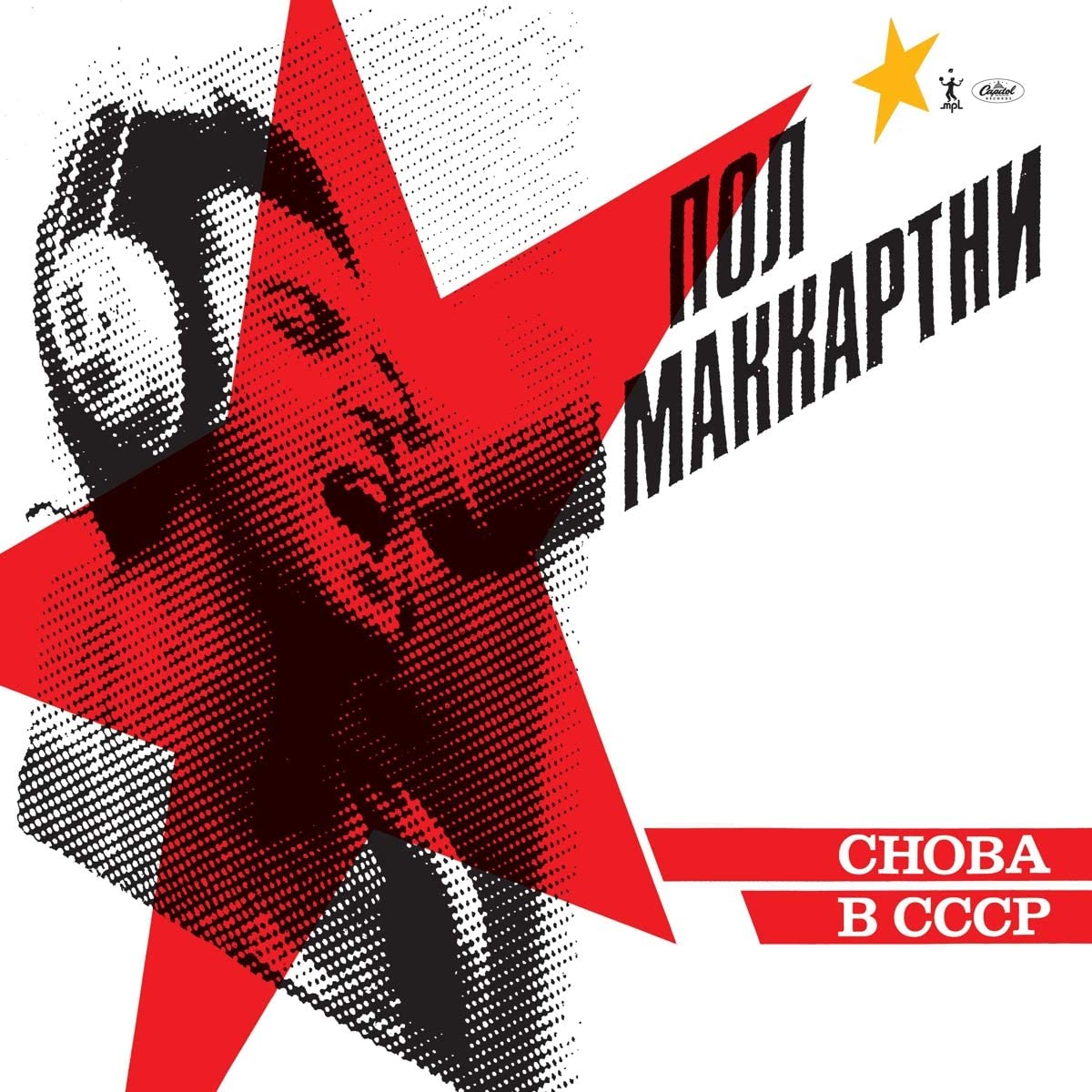
CHOBA B CCCP (‘Back In The USSR’) is stripped back palate cleanser after the production excesses of Press Play. Recorded live in the studio with a top band that included lauded Pirates guitarist Mick Green, Macca rattles through some rock’n’roll favourites and sounds like he is having a ball doing it. Not an essential album by any means, but in the the context of McCartney’s variable 80s output, a very welcome addition to the catalogue.
Beatles Handbook rating: 3 stars
Essential tracks
Twenty Flight Rock
Lucille
Lawdy, Miss Clawdy
Buy this album: Choba B CCCP
4. Tug Of War (1982)
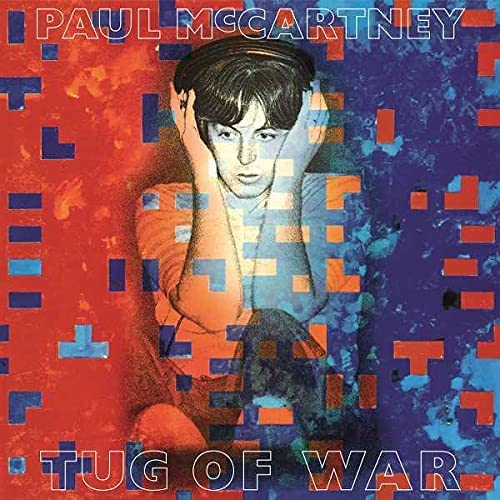
Recorded in the wake of Lennon’s death, Tug of War contains the moving tribute ‘Here Today’ to his former bandmate. Further Beatles connections in the form of George Martin’s production and Ringo Starr contributing drums and backing vocals on several tracks can save this from being an uneven and incoherent collection of songs. The almost endless personnel list includes everyone from Stanley Clarke and Steve Gadd to Andy Mackay and Carl Perkins (and Stevie Wonder of course) which reflects the album’s plethora of styles. The title track sounds much better now than it did at the time but still suffers a little from 80 bombast and grand statements, as well as some truly terrible lyrics and the unfortunate sub-high school English student rhyming of grumble/tumble/crumble.
The album also contains one of the worst songs ever composed in ‘Ebony and Ivory’. I’m sure some clever music critic somewhere has managed to argue its true artistic merits, but the reality is that this collaboration with Stevie Wonder is a mawkish and inane song with no redeeming features. Whereas the direct simplicity of ‘Silly Love Songs’ works wonderfully, taking a similarly naive approach to race relations in ‘Ebony and Ivory’ results in one the worsts clunkers in the entire McCartney canon. Somehow, two of the finest musicians and songwriters of all time manage to cancel each other out. At least we have ‘What’s That You’re Doing’, an absolute belter of a funk/pop tune to show what they could achieve together.
‘Wanderlust’ apart (a gospel-influenced, soaring ballad with a nice brass arrangement), the album is dragged down by too much ballast in the form of forgettable pop ditties like ‘Take it Away’, ‘Somebody Who Cares’ and the horrible comedic um-pah of ‘Ballroom Dancing’.
McCartney is a hard worker, no one could dispute it. Seven albums (plus a movie) in one decade is ample evidence of that. But listening to Tug of War makes you wish he’d taken it a bit easier, recharged the old song writing batteries and come up with something just that bit better.
Beatles Handbook rating: 2 stars
Essential tracks
Here Today
Tug Of War
What’s That You’re Doing
Buy this album: Tug of War
5. Pipes Of Peace (1983)
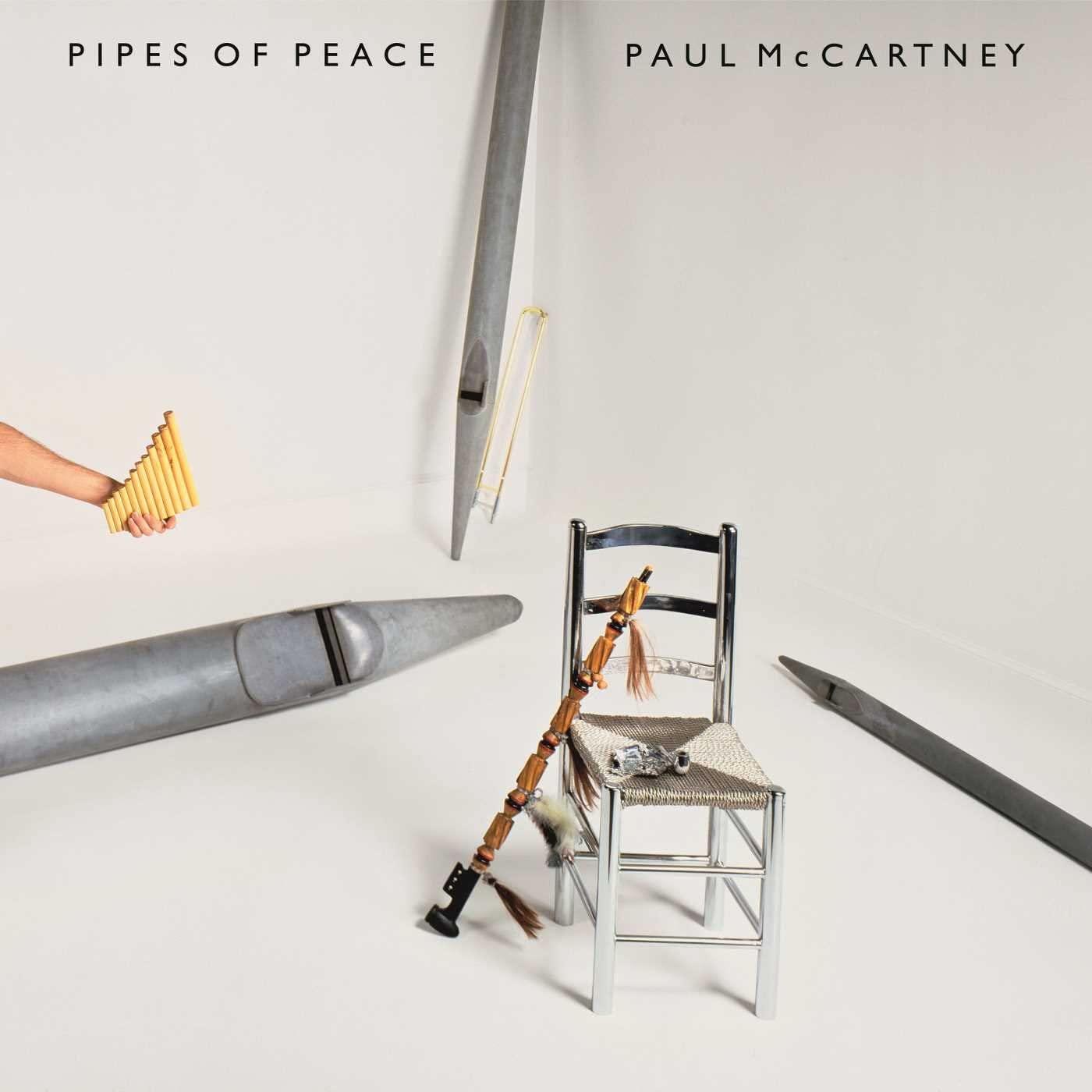
The title track is a finely crafted piece of catchy pop with some nice turns of phrase (‘Will the human race/be run in a day’) with a straightforward pacifist message. The remainder of the album is mostly made up of a vaguely pleasing wash of white pop/soul/funk (‘So Bad’ and ‘Through our Love’ are relative stand outs) that only catches fire when Michael Jackson gets involved; ‘Say Say Say’ is an enduring pop classic with an earworm of a melody and ‘The Man’ is just a great tune that features a sweet-as-honey Jackson vocal performance. With too many filler tracks like the disposable ‘Tug Of Peace’, it’s hard to imagine listening to the whole album through very often, if at all.
Beatles Handbook rating: 2 stars
Essential tracks
Say Say Say
The Man
Pipes Of Peace
Buy this album: Pipes of Peace
6. Press To Play (1986)
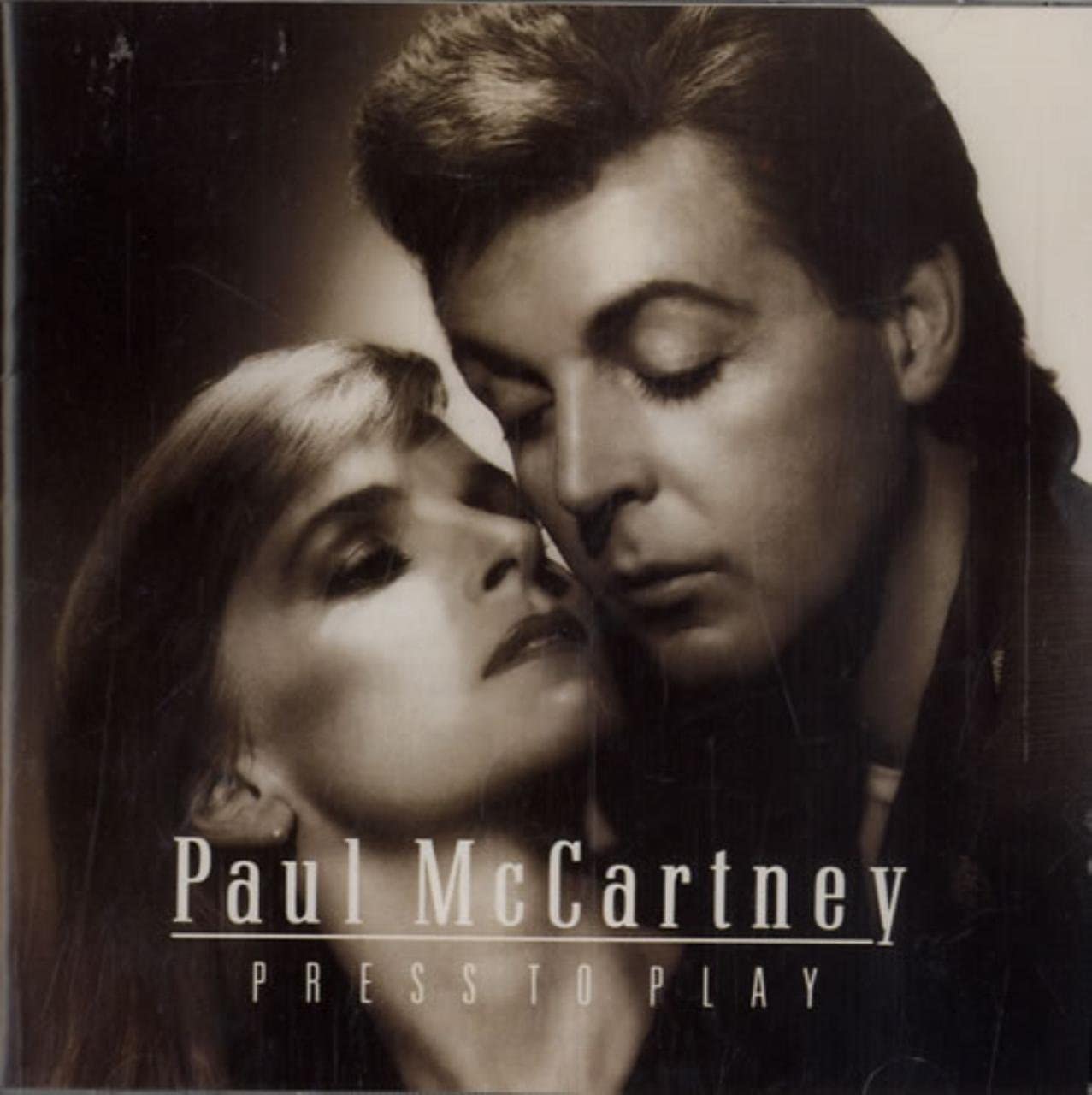
In which McCartney gets well and truly Hugh-Padgham-ed. A terribly dated, none-more-80s exercise in slick over-production. Unusually, McCartney seems to be relying on sound textures to create interest rather than solid song writing, despite help on a number of tracks from the estimable Eric Stewart. The cod-reggae of ‘Good Times Coming’ is a low point, the perfect, shiny pop of ‘Press’ is a real high. The solo-penned ‘Only Love Remains’ is beautiful, a true McCartney classic love song.
Beatles Handbook rating: 2 stars
Essential tracks
Only Love Remains
Press
However Absurd
Buy this album: Press to Play
7. Give My Regards to Broad Street (1984)
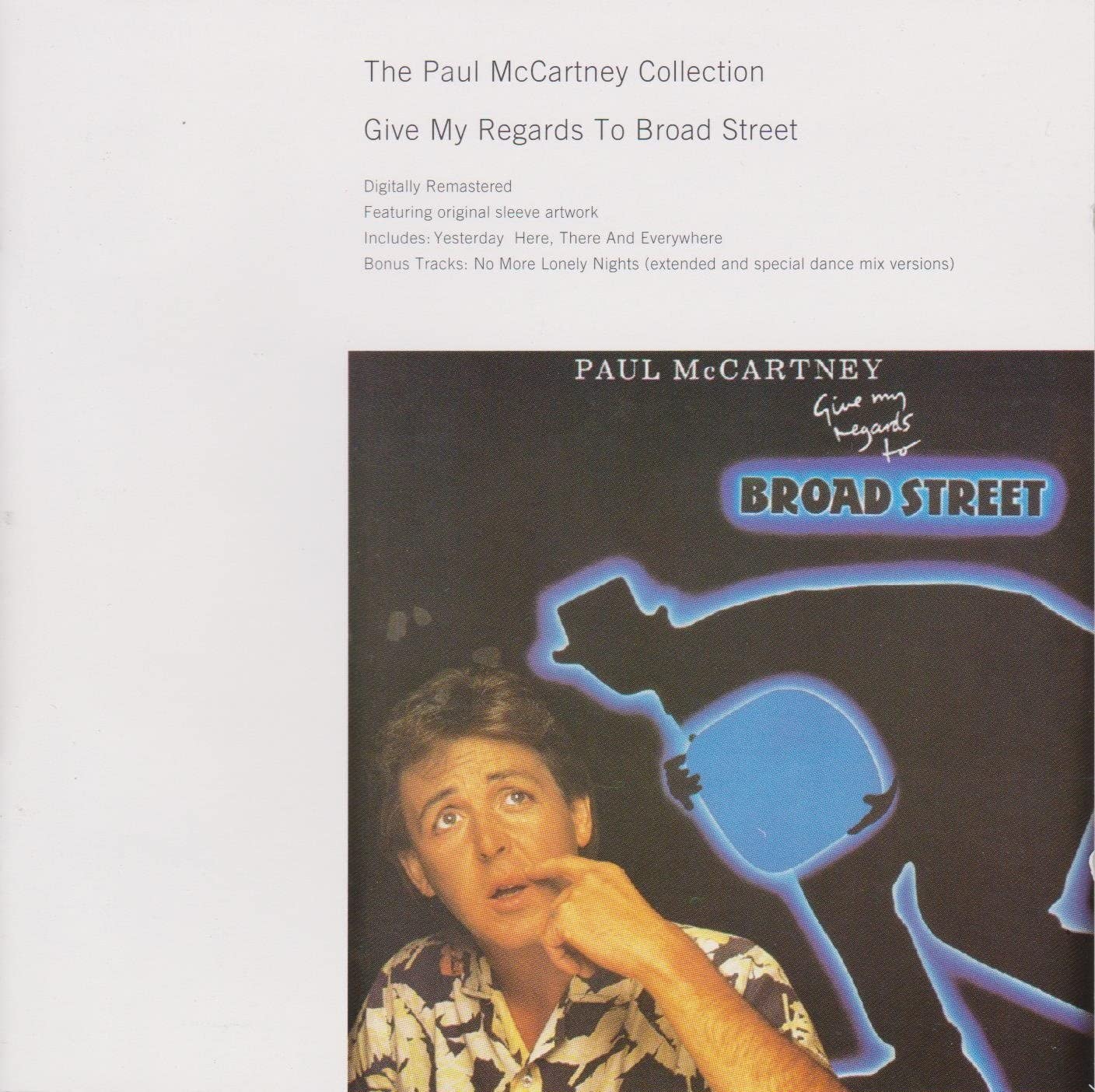
The soundtrack to McCartney’s ill advised post-Beatles foray into major motion pictures is mostly composed of re-recordings of previously released Beatles and solo McCartney songs. It’s a rum old mix, with stone cold classics like ‘Here There and Everywhere’ rubbing shoulders with lesser McCartney compositions such as ‘Ballroom Dancing’. The only new tracks on the album are the the excellent pop ballad ‘No More Lonely Nights’ (one of McCartney’s best) the average, mild mannered rocker ‘Not Such a Bad Boy’ and the faux-punk ‘No Values’ (*shrugs*). There’s an extended symphonic reworking of ‘Eleanor Rigby’ called ‘Eleanor’s Dream’, which is certainly interesting but hardly essential. McCartney completists will want an updated ‘Yesterday’ (even if it does sound very similar to the original) but others need not apply.
Beatles Handbook rating: 1 star
Essential tracks
No More Lonely Nights
Buy this album: Give My Regards To Broad Street
